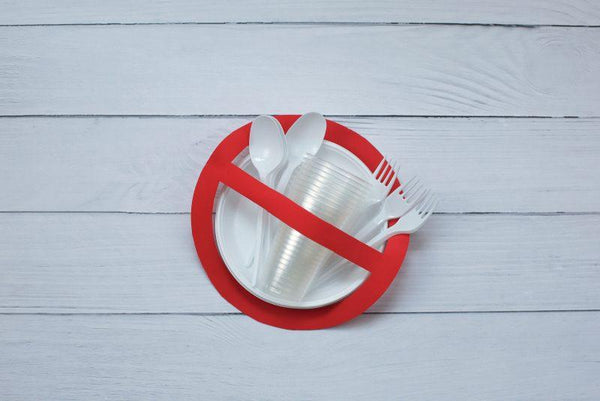
Google’s digital assistant is evolving beyond your phone. In the near future, your entire home could operate as a web of A.I. communication points. The technology is advancing, but is it wise to give devices that are always on more access to our daily lives?
Imagine a life surrounded by robots; in a way, we’re already there. Most of us spend a significant amount of time between our computers, televisions, and smartphones in front of one screen or another. Our lives could become even more intertwined with technology if Google’s plan comes to fruition. The multi-billion dollar technology company recently introduced Google Assistant compatibility to a variety of household devices like refrigerators. As more devices that operate through verbal communication enter the market, we’ll have to ask ourselves if the benefits really outweigh the costs. Is conversing with your dishwasher worth the vulnerability and sacrifice of your data and privacy?
Recently, Google has made several moves that indicate a serious intent to make its Voice software a seamless part of our daily lives. First, they hired 21-year old Facebook project manager Michael Sayman to lead the Google Assistant project. Described as a “wunderkind,” he was instrumental in helping Facebook understand generational trends regarding social media and mobile devices, along with advising on experimental products for teens.
Then, in late August, they announced a deal with LG Electronics to bring Google Assistant to the home appliance company’s washing machines and refrigerators. Soon, anyone that owns LG appliances will be able to easily experience a true Internet of Things within their home. If your phone is capable of using Google Assistant, you’ll be able to control any compatible devices remotely. Controlling the temperature in your house and knowing when the laundry is done will be as simple as the push of a button or a glance at your screen.
They’re not stopping at LG, either — Assistant is now compatible with Whirlpool and GE appliances too. To my great disappointment, it’s not yet compatible with Whirlpool’s bathtubs. It seems I’ll have to wait a bit before my dream of saying “OK, Google — maximum power to bubble jets!” becomes a reality.

Image source: Digital Trends
The roster of Assistant-ready products is ever-expanding, including unexpected items like sprinklers. Now, if you’re feeling particularly vengeful on a given morning, you can wait for unsuspecting passersby to approach your lawn before shouting the command to drench them without mercy. Truly, the possibilities are endless — but jokes aside, this technology has potential to transform our homes from simple shelters into extensions of our bodies.
Integrating Google Assistant with our homes is a direct evolution of the “Internet of Things.” The tools and devices that populate our physical world are becoming increasingly interconnected. The goal behind any of this technology is to design an everyday life where mundane tasks are automatically handled. Rather than making time to get groceries and having to remember when to change the laundry over, phone notifications and app-based shopping allow you to use your time and energy on more pressing matters.
Having constant, easy access to every device in the house is the domestic dream. With a simple utterance of “OK, Google,” your entire home could be at the ready, listening intently for your next order. It doesn’t matter if you’re bedridden with the flu, luxuriating in the bath, or simply don’t want to leave the couch. In a house designed around voice technology, you are everywhere at once.
It can provide a considerable amount of safety as well. Normally, if you leave the oven on or forget to lock the door, you either have to turn the car around and fix it, or spend the day riddled with anxiety while you wait to discover whether you still have a house to return to. Dangerous household accidents can be avoided, too. No more will Grandma cry “help, I’ve fallen and I can’t get up,” to an empty and unforgiving stairwell. By having access points spread across your living space, you’ll only be as far from human contact as your nearest appliance. Despite the wide-ranging benefits, though, ethical questions abound when we start putting listening devices in household items.
As with smartphones, or any device capable of recording and transmitting audio, the issue with any digital assistant comes back to privacy. These devices are always listening. Most devices are activated by a phrase, meaning your words are monitored at all times. Large corporations like Google and Amazon have a vested interest in your data, and what you search for and purchase gives them a brutally honest window into the things you like. Right now, most of the interactions with Google Assistant and Alexa are shopping orders or harmless questions.
However, per The Atlantic: “Google is promising to bring its know-it-all artificial intelligence platform even to conversations you’re having with other people. That means that Google can capture a wealth of new information, and from a setting that feels inherently more private.” The convenience afforded by an ever-present digital ear is invariably paid for in privacy.
The fact is, companies can develop an extensive portfolio of information regarding who you are. The question becomes: “do you care?” This information can be deeply personal, and you can never be completely sure that it won’t end up in the hands of law enforcement or someone with more sinister intentions. Could a nefarious person — or even an artificial intelligence — one day access your personal data cache? If it were to happen, it’s possible that information could be used to perpetrate highly sophisticated identity theft.
Thus far, most consumers aren’t too concerned. The popularity of digital assistants is growing as consumers choose novelty and convenience over data security. There’s some humor to be found in the fact that despite historic suspicion that the government is watching and listening to us, we are, in large numbers, making the decision to install listening devices in our homes of our own accord. One of Amazon’s interactive speakers is actually called the “Tap.”
As we continue to look for ways to create space in our busy lives, integrating with devices like the Google Assistant is likely to become the norm. The number of people taking a principled stand against data gathering by large corporations is far outweighed by holiday shoppers that want voice-activated light fixtures. There’s not anything inherently wrong with that — it comes down to how you value your privacy.
Just keep in mind that by filling your house with little speakers, you’re consenting to the release of a large part of your personal life. Don’t be surprised if something you said once comes back in a surprising or even slightly creepy way. It’s not as if they’re disguising the data-farming nature of digital assistants. They’re just betting that we don’t care.

The European Parliament voted for a complete ban on a range of single-use plastic waste across the union in a bid to stop pollution of the oceans. The proposal also called for a reduction in single-use plastic waste for food and drink containers, including plastic cups.

China has long been treated as our planet’s repository for plastic waste. The nation has accepted 45% of the world's total plastic recycling since reporting to the United Nations Comtrade Database began in 1992.

Even before plastic straw bans grew trendy, California was at the forefront of using less plastic and promoting more sustainable living. California pioneered a statewide ban on plastics beginning in 2016, when the state became the first in the U.S. to ban most stores from providing customers with single-use plastic bags, following a successful referendum. [...]